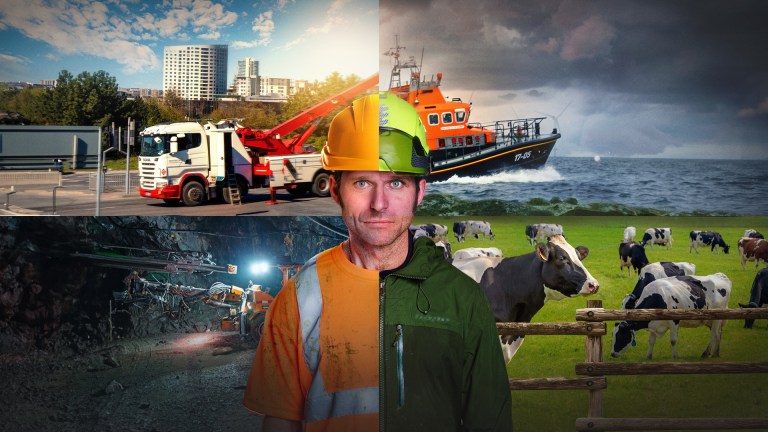At 16 I was doing a lot of reading, going to gigs, buying records, listening to the John Peel show. If it was still on I’d still be listening to John Peel now. Some of the things I heard on his show changed my life and still form the roots of everything I listen to now. Old reggae, the Nightingales, The Fall – they inspired me to write because their lyrics were so good. People forget what an amazing lifeline Peel was for people. He also gave me, perhaps rather self-destructively, that ‘no sell out’ mentality which has made my life more difficult than it needs to be. But I wouldn’t have it any other way.
I really enjoyed school. I was in this mountain-walking club and every other weekend we’d go to Wales and go climbing. We’d get in a minibus with our geography teacher and go to Snowdonia and go up and down mountains. I loved it. The original members of hardcore death metal pioneers Napalm Death were in the group too. None of them made it to the first album though.
I looked cadaverously thin when I was 16. I had just started going to hospital with something called ulcerative colitis, which meant I kept losing loads of weight. Which was actually really good. I wish I could get it again now. I had Morrissey hair, which I’ve now got rid of as a political protest. That’s one of the things I’d tell my 16-year-old self; don’t trust Morrissey. Other than that, I wear exactly the same as I did then and I probably had much the same sense of humour. In fact I’m much more now like I was in my mid-teens. In my twenties I was more of an arrogant and conceited man as I’d been given a taste of fame and success when I wasn’t really equipped to deal with it. I wasn’t very happy with myself.
Have I betrayed the 16-year-old me? Probably not actually. The teenage me might have found it mildly abhorrent that only this morning I listened to a Soft Machine record, a jazz-fusion record. But other than that, I’ve been able to live a charmed life and avoid most of the responsibilities and compromises that other people have. I’ve been so lucky I can’t believe it. Being asked to curate a whole weekend festival of arts and music [All Tomorrow’s Parties in 2016]. And being able to make four TV series of stand-up comedy, and make a living out of it, and to be called the world’s greatest living stand-up in The Times – he just wouldn’t believe it.
For years now I’ve managed to keep ploughing my own furrow without distraction. Part of that is fear of failure, of trying other things and being found out. Other things haven’t worked out. I came in to help with the story of Jerry Springer: the Opera in 2001, and that was basically banned, so after five years we all lost money on it. In 2005 I thought, I have to get away from big management and major promoters. There has to be a way of making stand-up pay off.
I worked out I needed about 5,000 people in the British Isles to like me. If they all gave me £10 a year then, after costs and paying tax, that would be enough to live on. That was all I aimed for. I thought, what was all this other stuff that had been going on for 15 years about breaking big markets and getting my face out? I didn’t have to do it. And actually, what I would say to my 16-year-old self is, don’t go through those 15 years. Get to where I eventually got to sooner.









